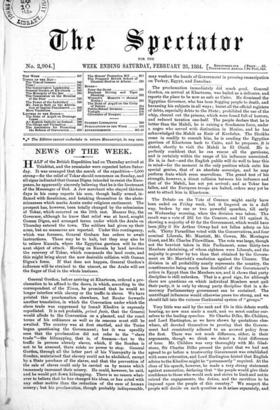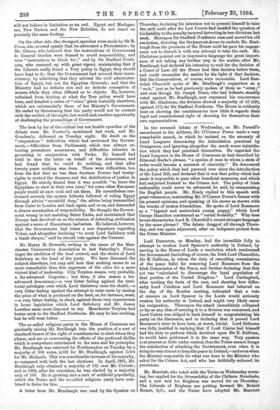Very little was said by the rank and file in
this debate worth hearing, no new man made a mark, and we must confine our- selves to the leading speeches. Sir Charles Dilke, Mr. Childers, and Lord Hartington, as we have shown by quotations else- where, all devoted themselves to proving that the Govern- ment had consistently adhered to an avowed policy from the first. There was not much difference, either, in their arguments, though we think we detect a faint difference of tone. Mr. Childers was very thoroughly with Mr. Glad- stone, Sir Charles Dilke pressed the point that we had not agreed to go before a trustworthy Government was established with some reiteration, and Lord Hartington hinted that English advice to the Khedive might be " permanently " required. At the close of his speech, however, he made a very strong statement against annexation, declaring that "the people would give their confidence to those who would seek and strive to limit and not to extend the engagements, the duties, and the sacrifices to be imposed upon the people of this country." We suspect the people will decide on each question as it arises separately, and
will not believe in limitation as an end. Egypt and Madagas- car, New Guinea and the New Hebrides, do not stand on precisely the same footing.



































